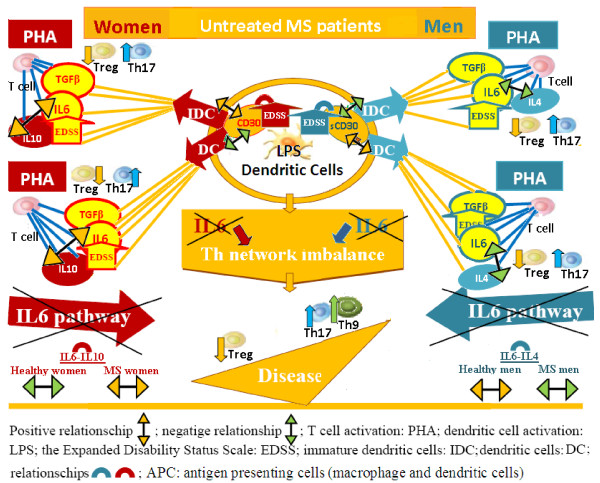Figure 4.
The IL6 pathway alteration is involved in neurological deficit increase and Tregs imbalance in untreated male and female patient groups, underlining the autoimmune etiology of multiple sclerosis. Immunological alterations in IL6 pathways are responsible for the Treg imbalance and increase of EDSS in both sexes in untreated MS patients. In fact, IL6 together with TGFβ pathways, a dual biomarker for Treg/Th17-network imbalance, were involved in the EDSS increase in both untreated, men and women groups of MS patients (Figures 3c and 3d: the vectors of TGFβ IL6 and EDSS are positively related). Furthermore, in health, APC IL6 pathways regulate Th cell differentiation and Th cell network homeostasis by the positive linked production of IL6 and IL4 in men, and the negative linked production of IL6 and IL10 cytokines in women (Figure 1, p-cytokines). Whereas in untreated MS patients, the relationship between the production of IL6 and IL4 had changed from positive to negative in men, while the relationship between the production of IL6 and IL10 had changed from negative to positive in women (Figures 3c and 3d).

